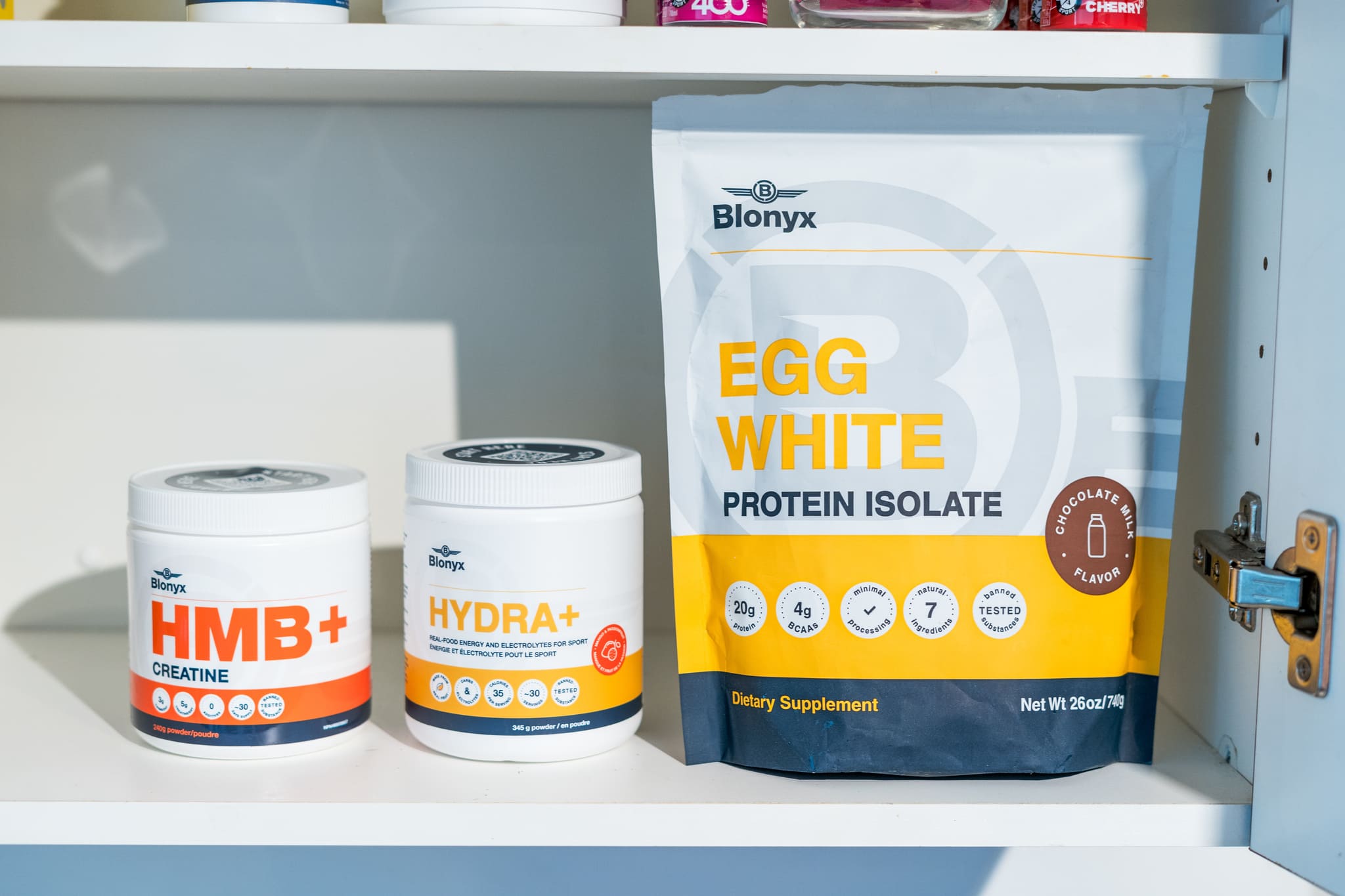Welcome to my weekly summary of the latest research from the world of sports science!
This week’s research roundup explores why protein shakes aren’t enough to prevent muscle loss after injury, how carbohydrate timing can impact blood sugar and fuel use, and whether creatine really causes hair loss (spoiler: it doesn’t). These studies challenge conventional wisdom and may help you rethink your recovery strategy—read on!
Protein Shakes Won’t Prevent Muscle Loss After Injury
This study looked at whether whey protein could reduce muscle loss and speed up recovery from common strain injuries like those to the hamstrings or calves. Fifty recreational athletes were given either whey protein or a placebo twice daily during a 12-week rehab program, with progress tracked over the course of a year. Despite following a structured and progressive rehab plan, the injured muscles showed significant long-term loss of volume, and the connective tissue (aponeurosis) in the injured area remained structurally altered. Protein supplementation didn’t prevent the muscle loss, improve strength recovery, or speed up the return to sport. This suggests that while protein supports general training adaptation, it may not be enough on its own in the context of strain injury recovery.
My thoughts: While protein intake plays a supportive role in recovery, it isn’t enough on its own to prevent muscle loss after injury. Targeted derivatives like HMB and possibly creatine—like found in HMB+ Creatine and HMB Sport—may be more effective, especially when it comes to preserving muscle during periods of reduced activity. More effective rehab strategies are needed—especially those that target both muscle and connective tissue.
Carbohydrate Intake Timing Influences Metabolic Flexibility
This study examined how the timing of carbohydrate consumption influenced the body’s ability to manage blood sugar and fuel utilization. Ten trained male cyclists participated in evening workouts and consumed a placebo or a carbohydrate-rich drink either before or after exercise. Consuming carbs before exercise slightly lowered blood sugar during the workout but didn't impact performance. Surprisingly, ingesting carbs after the workout impaired the body's glucose tolerance the next morning. However, post-exercise carb intake improved the body's ability to switch between burning carbs and fat, known as metabolic flexibility, which may enhance performance in subsequent workouts. Both pre- and post-exercise carb consumption increased fat burning the next morning compared to no workout. While post-exercise carbs may slightly impair next-morning blood sugar control, they enhance fuel utilization efficiency, potentially benefiting subsequent workouts.
My thoughts: I used to train in the evenings after dinner and would consume something afterward before bed. I stopped this routine mainly because my sleep quality declined, as it took longer for my heart rate to return to resting levels. Additionally, I noticed fluctuations in morning energy and hunger levels when training late, which might be related to blood sugar variations.
Creatine Supplementation Does Not Cause Hair Loss

This study investigated the long-standing concern that creatine contributes to hair loss. 45 resistance-trained men between ages 18–40 were split into two groups: one taking 5 grams of creatine monohydrate daily, the other taking a placebo. There were no changes in hair follicle health indicating that creatine does not negatively impact hair growth or lead to hair loss. In short, for healthy young men, creatine had zero impact on hormones or hair over 12 weeks.
My thoughts: Well, that settles that. Supplements like HMB+ Creatine don’t cause receding hair lines.
That’s all for this week! If you learned something new and are curious to know more, head over to the Blonyx Blog or my growing list of weekly research summaries where I help you further improve your athletic performance by keeping you up to date on the latest findings from the world of sports science.
– Train hard!
Looking for more ways to keep up with Blonyx?
Now, you can join the Blonyx Strava Club to track your progress, share training tips, and connect with athletes who share your athletic ambition.
You can also follow us on Instagram and Facebook for additional sports science information, announcements, exciting giveaways, and more!



